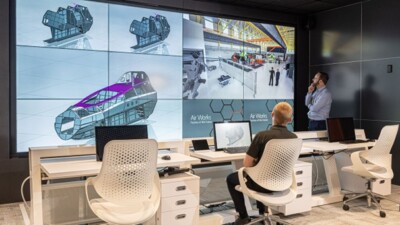Technical expertise is the job. But as I look back, I wish I had paid more attention to one specific thing.
Towards the end of my engineering career, I often reflected on my journey, the decisions I made and the paths I followed. Engineers work in a field that requires a deep understanding of technical concepts and the ability to follow concepts through to completion. I had always thought sincerity, preciseness and attention to detail was the hallmark of a good engineer. However, as I look back, there is one thing I wish I had paid more attention to and that is the importance of understanding how organizations work from a business perspective. Technical expertise is critical but undoubtedly interpersonal relationships and understanding an organization operation is also crucial for a productive and successful engineering career.
The technical foundation is a double-edged sword
As engineers, our expertise and training are focused heavily on technical knowledge and skills. From rigorous coursework in mathematics, physics, mechanical & electrical systems, to hands-on projects and internships, the emphasis is always on improving our technical abilities. This foundation is essential—engineering is fundamentally about solving simple and complex problems and creating innovative solutions. However, this technical focus can sometimes become a double-edged sword leading us to undervalue the softer skills that are equally important in a professional setting.
Early in my career, I concentrated on developing my technical abilities with the believe that, if I could master the finer points of engineering principles, I would naturally do well in my career. While this did hold some truth, it overlooks a crucial aspect: engineering does not occur in a vacuum. Engineers work within organizations, collaborate with teams and serve customers. Just as important is ensuring technical solutions align with broader business goals.
Realizing the importance of management
Looking back, there were quite a few instances where a better appreciation for management could have avoided friction. Here’s a few lessons learned over the years:
- Managers want to hear about solutions to problems. It’s prudent to approach management with one or two suggestions on how to fix the issue. Your manager most likely already expects you to be able to solve the problem and really just needs to know how much time and money you need.
- Technical solutions must align with business goals. Ask your manager what they expect the solution to achieve from their perspective. Understanding the business goal may open doors to overlooked technical solutions.
- Managers are decisions makers whose job is to remove uncertainty to keep the business on track. Find ways to articulate your ideas in concrete ways. Replace responses such as “I don’t know” to “I will investigate and get back to you by Friday”.
- Find ways to build confidence with your management by showing that you are paying attention to business goals.
- Early in my career, I struggled with adjusting to the fact that some leaders are hands-on and detail-oriented, while others take a more hands-off approach. Some managers excel at providing guidance but allow for autonomy. This often left me feeling frustrated when a leader’s style did not match my expectations. Find ways to adapt your approach based on the leader’s style. This will improve your working relationships and outcomes.
The role of non-technical communication
The most crucial “people skill” in an engineering career is clear communication. Engineers often find themselves in the position to explain complex technical concepts to non-technical stakeholders, including managers, clients and colleagues from other departments. An engineers must be able to translate technical explanations into understandable language. I struggled with this ability and would have greatly benefited from taking some extra courses in business communication. I would often present my work in highly technical terms, assuming everyone would understand. This approach led to confusion, misalignment of ideas and gave people the impression I was somewhat arrogant.
Learning the importance of tailoring my communication to my audience took many years. I started using analogies, visual aids and simplified explanations to convey my ideas more effectively. This shift not only improved my interactions with stakeholders but also fostered a more collaborative and productive work environment.
Navigating organizational and customer dynamics
Understanding how an organization works is another critical aspect of career success that I initially overlooked. Organizations are themselves complex entities with their own cultures, hierarchies and processes. Understanding how to navigate this could be key in getting the funding or permission for a specific project.
Interacting with customers and understanding their needs is another crucial aspect of the job. Customers may not always articulate their requirements clearly or accurately—in some cases they may not know exactly what they want. It’s the engineer’s responsibility to ask the right questions through requirements elicitation to ensure the final product meets their expectations.
I often found myself siloed within my technical domain, disconnected from the broader organizational context. I focused on technical specifications without fully understanding the customer’s perspective. I focused solely on my tasks without considering how they fit into the bigger picture. This narrow focus limited my ability to influence decisions and contribute strategically to the organization’s goals. This approach also sometimes led to solutions that were technically sound but did not fully address the customer’s needs.
By developing better communication skills and empathy, an engineer can build stronger relationships with managers and customers, resulting in more effective solutions.
The value of cross-functional collaboration
In the early stages of my professional journey, I frequently worked in isolation, focusing solely on the technical aspects of my projects. This siloed approach limited my ability to leverage the knowledge, perspective and insights of colleagues from various departments. Engineering projects often require collaboration across different departments, including marketing, sales, finance and operations. Effective cross-functional collaboration can lead to more innovative solutions and better project results. By actively seeking to collaborate with cross-functional teams, I was able to gain new perspectives, enhance my problem-solving abilities and contribute more strategically to the organization’s success.
The impact of people skills on career success
Looking back on my engineering career, I realize that developing people skills and understanding how organizations work could have significantly enhanced my professional journey. While technical expertise is undoubtedly important, it is only one piece of the puzzle. Effective communication, emotional intelligence, networking, mentorship, and cross-functional collaboration are all essential components of a successful and fulfilling engineering caree



